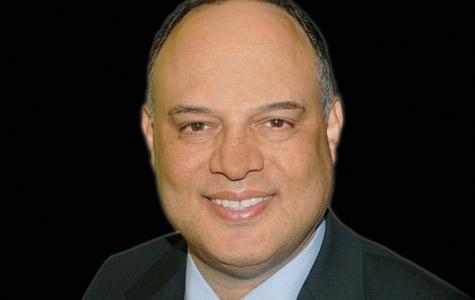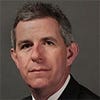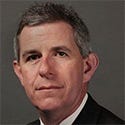As-a-service infrastructure, apps enable healthcare distributor to focus more on core business innovations, says H.D. Smith CIO David Guzman.

This article is the first in a series of interviews with disruptive CIOs and other IT thought leaders.
We're all familiar with the typical pharmaceutical supply chain: A pharma company develops a drug and, after gaining FDA approval, mass produces it and distributes it to pharmacies. Physicians prescribe it. Potentially hundreds of thousands of patients walk into pharmacies armed with prescriptions and walk out with the drug.
Age, weight, medical history, genome, and gender vary widely across potentially hundreds of thousands of patient-customers, but the drug is the same, with the possible exception of dosage.
But the future of the pharmaceutical supply chain is personalized, tailored to the unique variables that impact the efficacy of treatments for different patients. Aided by the creative application of cloud computing, that future isn't far away.
[Do you need a deeper leadership bench? Send your most promising leaders to our InformationWeek Leadership Summit, Sept. 30 in New York City, for a day of peer learning and strategic speakers.]
David Guzman, CIO of the healthcare product and service distributor H.D. Smith, paints an enthralling picture of the age of personalized medicine, one in which tiny devices -- the size of a grain of sand -- will be programmed with the information we know about your genome. If you're having chest pain or shortness of breath, doctors will pump these personalized devices into your bloodstream. Equipped with blood cells and other tools designed just for you, this army of nanotechnology warriors will attack two of the biggest killers today: myocardial infarction and stroke.
This isn't a sci-fi prediction. The core technology enabling this transformative reality was approved by the FDA two years ago.
Guzman tells us that the era of personalized medicine is already under way. "We're living in an age in which medicine is becoming much more preventative, more personalized, more prescriptive to your particular condition," he says. "Already there is a $27 billion market for personalized applications of medicine for devices running iOS and Android. We are witnessing the transformation of healthcare via the integration of medicine and technology."
So what does this mean to H.D. Smith, a 60-year-old, family-owned healthcare distributor based in Springfield, Ill.? Guzman describes a radical shift in business strategy and company vision, and how its move to the cloud is paving the way.
"Our biggest competitors today are companies that are aligned to the mass production model of medicine. That's a one-to-many approach," Guzman explains. "Our competitors tomorrow will be those that deliver personalized medicine in a one-to-one approach. The competitive currency of that system is information."
H.D. Smith chairman and CEO Dale Smith describes the strategy as "end-to-end," providing products and services that span that active component in the drug all the way to the patient and every step in between. "What we're starving for in the healthcare system today is the link of information down the chain and, even more importantly, back up the chain," Guzman says. "When we are able to assess the results of a particular medication in a particular patient and iterate that information throughout the value chain of medicine until we get optimal outcomes for that patient, the results are astonishing."
As a means of getting there, H.D. Smith set out in 2010 to move its entire technology stack into a consumption-based, as-a-service model. The first step was adopting infrastructure-as-a-service. Next, Guzman directed the migration of EDI, controlled-substances operations, and business intelligence to the cloud, the BI via a self-service offering from FusionOps. Next up is outsourcing app development and data analytics capabilities.
"There's a lot of heavy lifting in the implementation phase of a cloud transformation, but the end results are agility, focus, and cost benefits," Guzman says. "From a financial standpoint, it takes time to get there, because you still have to pay for all the investments of the past. But ultimately, you are paying only for the services that you consume."
The cost savings of using cloud infrastructure are derived mostly from eliminating overprovisioning, Guzman says. "This is a fairly easy number to quantify. But the cloud provides windfalls in other ways that are tougher to quantify but still immensely valuable." Examples he cites include increasing agility and enabling employees to focus on developing core differentiators and value-added services.
"We're seeing the financial benefits of the investments we've made," Guzman says, "and with the fundamentals behind us, we're devoting our full focus on being a leader in end-to-end personalized medicine."
Want to hear more from CIO David Guzman? Hear what he had to say at our most recent InformationWeek conference.
In its ninth year, Interop New York (Sept. 29 to Oct. 3) is the premier event for the Northeast IT market. Strongly represented vertical industries include financial services, government, and education. Join more than 5,000 attendees to learn about IT leadership, cloud, collaboration, infrastructure, mobility, risk management and security, and SDN, as well as explore 125 exhibitors' offerings. Register with Discount Code MPIWK to save $200 off Total Access & Conference Passes.
About the Author(s)
You May Also Like







